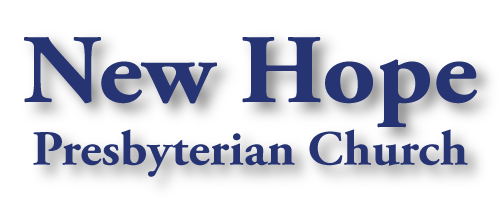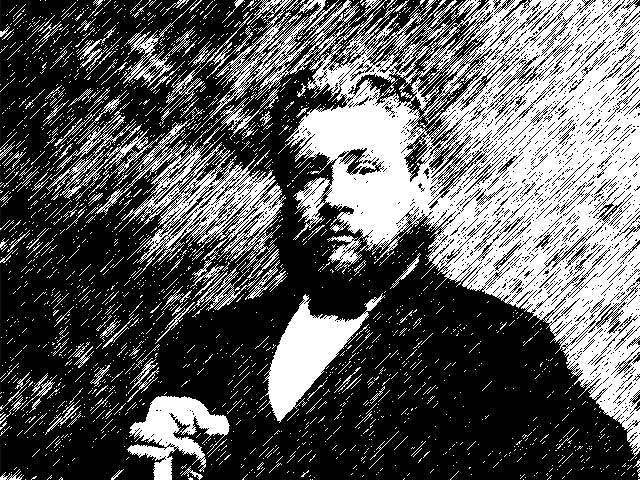Spurgeon and the Doctrine of Scripture
For all the supposed benefits smartphones have added to daily life, do you know what I might be most thankful for? The flashlight feature!
You probably used it half a dozen times yesterday alone: looking for something in the garage, reading a menu in a dimly lit restaurant, searching for something your child threw under the couch, or trying to get ready for bed without waking your spouse.
Why do we need light? Because darkness surrounds us. As a sinner living with other sinners in a fallen world, you encounter darkness every day. So while you may experience Instagram-worthy, sunny-day moments, they are short-lived. The reality is that life is more of a midnight walk through the woods.
From its very first words to the last, the language of darkness and light courses through the Bible:
“In the beginning, God created the heavens and the earth. The earth was without form and void, and darkness was over the face of the deep.” (Genesis 1:1-2)
“I, Jesus, have sent my angel to testify to you about these things for the churches. I am the root and the descendant of David, the bright morning star.” (Revelation 22:16)
While you can find hundreds upon hundreds of verses that include darkness and light, I don’t think a single one captures our need for light in a dark world better than Psalm 119:105: “Your word is a lamp to my feet / and a light to my path.”
And it’s hard to find a better description of Psalm 119:105 than what the great nineteenth-century preacher Charles Spurgeon wrote:
“We are walkers through the city of this world, and we are often called to go out into its darkness; let us never venture there without the light-giving word, lest we slip with our feet. Each man should use the word of God personally, practically, and habitually, that he may see his way and see what lies in it. When darkness settles down upon all around me, the word of the Lord, like a flaming torch, reveals my way. Having no fixed lamps in eastern towns, in old time each passenger carried a lantern with him that he might not fall into the open sewer, or stumble over the heaps of ordure which defiled the road. This is a true picture of our path through this dark world: we should not know the way, or how to walk in it, if the Scripture, like a blazing flambeau, did not reveal it. One of the most practical benefits of Holy Writ is guidance in the acts of daily life: it is not sent to astound us with its brilliance, but to guide us by its instruction. It is true the head needs illumination, but even more the feet need direction, else head and feet may both fall into a ditch. Happy is the man who personally appropriates God’s word, and practically uses it as his comfort and counsellor,—a lamp to his own feet.” 1
You need light for your marriage and your parenting. You need light for your job and your relationships with your neighbors. You need light for your struggles with desires and temptations.
You need light to help you deal with the unexpected. You need light to cope with new difficulties that emerge. You need light for when you have been sinned against. You need light to deal with weaknesses of the body and hardships of the heart.
You need light for those moments when you’re alone and overwhelmed. You need light for all the unknowns that will show up on your doorstep tomorrow, the day after tomorrow, and for the rest of your life.
You don’t need to bloody your nose and bruise your toes by bumping into trees and tripping over roots. You don’t have to grope around fearfully in the darkness. The light of the world has graced you with the light of his word! It will shine around your feet in the dark so you don’t stumble and fall.
God bless,
Paul David Tripp
1 Charles Haddon Spurgeon, Treasury of David, vol. 5, Psalms 111–119 (London: Marshall Brothers, n.d.), 342, Christian Classics Ethereal Library, www.ccel.org.
Reflection Questions
1. Consider all the ways you needed a physical light yesterday. How did darkness create difficulties or dangers, and how did the presence of light alleviate those difficulties and dangers? Next time you bump into these metaphors in creation, how can you remind yourself of their spiritual parallels?
2. Where are you currently experiencing the darkness of life in a fallen world, as a sinner living with other sinners? Be specific and consider these three elements: A) How has the brokenness of the world made your life dark? B) How has your own sin made your life dark? C) How has the sin of others cast darkness on your life?
3. Spurgeon said that each of us should use the word of God personally, practically, and habitually. Consider each of those three descriptions: A) Is your study of the Bible impersonal and distant? B) How can you practically apply the word of God to your everyday life? C) What interferes with your devotional life being a habitual practice.
4. Who do you know who is living in spiritual darkness, both saved (but unable to see in complete clarity because of a particular sin) and unsaved? How can you shine the light of Scripture at their feet and illuminate their path, by the grace of God and with the power of the Holy Spirit? Think of specific ways to preach and display the gospel to them.
Want to learn more about New Hope Church? Click here.

